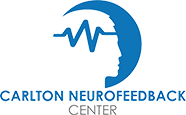Neurofeedback is a type of exercise for your brain that can help it operate more efficiently, making it easier to manage stress, stay focused, and think more clearly. However, neurofeedback goes by many names, making it a little confusing to identify. It can be called Neurotherapy, EEG neurofeedback, neurobiofeedback, brainwave training, EEG biofeedback, and more. At its core, neurofeedback is a form of specialized biofeedback that is guided by a brain map or quantitative electroencephalogram (qEEG). By comparing each individual’s unique brain wave patterns with a large database and using a patient’s reported symptoms, a custom training protocol based on research is developed to help each individual’s brain learn to self-regulate itself better. In our continuing series (See part 1 and part 3), here are more myths and facts to know about this proven mode of non-invasive brain training.
I can speed up my own neurofeedback training by trying harder.
No. The best neurofeedback therapy outcomes are possible when you come to your appointment regularly so that the training is consistent and sustained. We provide an environment to help you relax physically so your mind is free to be attentive to the training program. Think of neurofeedback like a marathon. It takes sustained practice to develop good habits of mind that will stick around for the long haul. There are not any shortcuts to achieve the same or comparable results.
I can’t do psychotherapy or medications at the same time as neurofeedback.
Not true. We often work in partnership with other healthcare professionals to provide a higher standard of care. If you have a psychotherapist, we invite you to continue working with him or her. We find it can positively amplify the effects of Neurotherapy. You can and should continue your medication regimen prescribed by your physician. Over time you and your physician may be able to reduce your dose or eliminate your medication entirely if your medication is treating a brain-based condition, like anxiety or attention deficit disorder (ADD).
Effects of Neurotherapy wear off over time.
Quite the opposite. In most cases and with a consistent regimen lasting at least 8-12 weeks, the new connections your brain makes as it learns to better self-regulate can last for years. This brain training becomes a permanent skill that your brain continually reinforces daily. A case in point: how many of you can still hum the alphabet song as adults? I bet you didn’t realize that training was permanent when you were in grade school! There are situations where an additional shorter “tune-up” can be beneficial when someone experiences a setback or crisis in their life. Follow-up regimens of Neurotherapy might be needed in the case of individuals with autism, brain injury, or other degenerative conditions. Most patients, however, keep the lifelong benefits of Neurotherapy.
If I don’t see positive symptoms right away, Neurotherapy must not work.
No. It’s helpful to understand that there is a range of timing when we expect patients to notice the benefits of Neurotherapy. Roughly half of the individuals will notice results right away or within the first four sessions. But we don’t expect everyone to respond so quickly. The biggest gains are seen over time – with many more patients reporting results and symptom relief after at least 8-12 sessions. Having better sleep quality is one of the first things we typically hear about. Often we hear about relief from symptoms that were never reported in the first place. A small percentage of people do not respond to this type of training.
Neurofeedback is an expensive treatment.
No. If you weigh the costs of a lifetime’s worth of medication, time lost from work and daily activities, and long-term counseling, any one of these costs could be staggering by itself and more so if combined. Whereas individual Neurotherapy sessions cost the equivalent of a massage or afternoon at the salon, with long-term benefits and symptom relief that lasts for years. It is frustrating that insurance does not always cover this type of treatment which can have such tangible, long-term benefits. However, the use of health savings accounts and payment plans can help make it easier to spread the cost over time. The investment in your health and well-being is priceless.
Ready to Learn More?
Contact Dr. Ed Carlton at Carlton NeuroFeedback Center at (703) 335-9149 or make your appointment online for a no-obligation evaluation to answer all of your questions. The clinic is located in Manassas and is convenient to Northern Virginia and Washington, DC Metro area. If medication and other treatments are not making a difference, we encourage you to learn more about this modern technology and how it can unlock your brain’s ability to be more resilient and perform at its peak. Our free eBook offers more information and first-person accounts of the benefits of neurofeedback that we invite you to download and share, so more people can learn about neurofeedback no matter where they live. If you live out of the area and are looking for a certified, trained neurofeedback practitioner, the Biofeedback Certification International Alliance (BCN) has a searchable practitioner list of neurofeedback professionals so you can find one near you.


